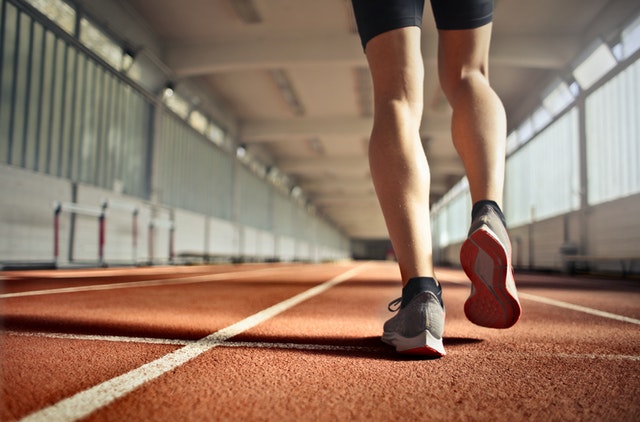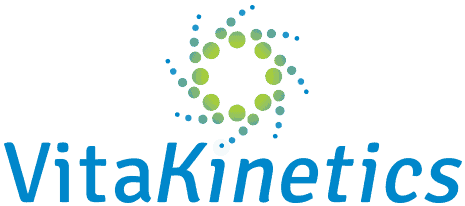Radically Resilient Health Podcast
NUTRITION FIRST, THEN SUPPLEMENT
In this episode, special guest, Dr. Danielle Litoff MPT/DPT joins Dr. Carolyn Dolan to discuss the importance of nutrition as a main ingredient in recovery and how we need to make supplements a support role instead of replacing whole foods.
Transcript:
Connie Wray: (00:00)
Welcome back to radically resilient health with Dr. Carolyn Dolan, excited today to talk with Dr. Danielle Litoff. She is the owner and lead physical therapist at Battleborn health in Reno, Nevada. She works with both her physical therapy patients and her functional medicine clients to help them achieve their health goals. She is a provider who also suggests the use of Vitakinetics to her patients. And today we’re going to talk to her about her relationship with Vitakinetics and Dr. Dolan’s main principles eat well. Move well, sleep well supplement. Well, welcome back to the podcast, Danielle. It’s great to have you.
Dr. Danielle Litoff: (00:37)
Thank you. I love being here with you guys. This is exciting.
Dr. Carolyn Dolan: (00:41)
Anybody hadn’t watched one of our videos before, cause we had interviewed you before, on our website, Danielle and I go way back now, since when I first moved back to Nevada, we worked in the outpatient clinic together for many years until every our clinic sort of broke up. Every a lot of things changed, but everyone went out on their own and that’s when you started Battleborn health. And so we have been remained friends for many years, um, both professionally and personally. And so I’m really excited to hear your story and share it with our listeners.
Dr. Danielle Litoff: (01:16)
And I’m just, I’m super grateful to you and grateful that we had the dream team we had, and it’s really been fun to be able to collaborate as we have gone in different directions. And it’s so it’s, to me, Vitakinetics is awesome. And I love the fact that we still have this personal friendship, as well as this professional collaboration. It’s pretty awesome.
Connie Wray: (01:37)
Danielle, what was your first experience like with Vitakinetics? Was it a personal experience that you tried at first and then started addressing it and adding it to, to your patients protocols?
Dr. Danielle Litoff: (01:51)
It’s an interesting way when I start thinking about it, my first, my first was when she first mentioned it, right? Like I remember when Carolyn went back and got her master’s in, in, um, holistic nutrition and I was like, wow, you go girl. That’s awesome. And so my first experience was the inception when she started talking about it and I thought, oh, this is awesome. And I started watching how she was developing it. Like I said, like Carolyn said, we worked in a clinic where we all, as physical therapist started looking out of our own little physical therapy box into wellness and nutrition, um, into how the whole body works together. And you can’t break up musculoskeletal muscular musculoskeletal system from the gut, from the brain, from the, you know, it all moves together. And, um, there were really four of us on this path together that, and it was just awesome to watch her go down this path of a lot of the connections we had in physical therapy of why people were maybe not getting better as fast as we expected to really break it down into these nutrient pieces. So that was really my first, you know, my first, you know, connection with it was at its inception. And so then, um, as she prevailed that she produced, it, developed it, as it changed over a time, I got to use it with my kids. I got to use it myself. I got to use it with my patients. So each step along the way was a different experience.
Dr. Carolyn Dolan: (03:14)
And what’s interesting is I always forget about that journey from the very get-go when we were all looking outside of our little physical therapy box. And when I went down that path, I was trying to like, just prove the need for supplements that really all we needed to do was change our habits and how we ate, how we were sleeping, getting the right movement and the right stress management piece. And when I started to realize that sometimes those things are really difficult to do depending on the condition, but that there was actually a lot of data out there that supported the use of the right supplements and the right dosing and the quality. So it was, yeah, you really have been around for that whole part from the inception to, you know, practically using it until its final sort of final form where we tried to make it most convenient. And user-friendly,
Connie Wray: (04:05)
I have to just chime in here because, um, I’m nursing a really bad sprained ankle, so bad that I had to go see a Carolyn’s husband because I thought I broke it. And I had an experience with Vitakinetics on an internal injury. I was dealing with hip issues and had a hip surgery and then a hip replacement. And what’s interesting is I hadn’t really had like a quick injury where I did something that seriously had swollen up. And I immediately, after my injury was, was taking the Vitakinetics and I ran out of my bottle and I called Carolyn and I was like, I need to get another bottle from you. But to really see within days what was happening to my ankle, it was a true Testament. Like I could visually see my ankle was coming down. It was getting better just with that continued add adding of the Vitakinetic supplement. And then also for me, the idea that I didn’t have to take an anti-inflammatory or a, a drug per se, like I didn’t want to pain med, and I was able to use something that was more natural and more healthy to bring that swelling down. So I feel like this week has really just been yet another Testament to what I have witnessed, uh, the power of Vitakinetics, just from a quick, you know, an ankle injury at the gym.
Dr. Danielle Litoff: (05:22)
It makes a big difference to be able to do that and to see how our body responds to different supplements. You know, so it’s the right, like Carolyn said, it’s the right supplement at the right time and the right environment, you know, and I had a professor once that said, supplements are for the time that you need them. They’re supplemental. Otherwise they’d be called permanence. We really want to look at that, like what’s going on in your life? Why do you need this and do the best we can to fill our bodies with real food? And like you said, Carolyn, all of the stress management, all the lifestyle stuff, but there are times where we overwhelm the system and we need more help. And that is not something that should be ignored or shamed or anything like that. Right. It’s, there’s, there’s a time and a place.
Dr. Carolyn Dolan: (06:04)
Do you have any specific patient or clinical stories in mind where you used it clinically as a recommendation,
Dr. Danielle Litoff: (06:12)
A lot of patients with gut problems to, you know, and so I have a lot of patients who, you know, truly their, their digestive system is messed up. They ha they are on other medications and they may be on PPIs for GERD, those types of things. Right. And you don’t want them on Advil. You don’t want them on those anti-inflammatories cause that really does cause havoc in the digestive system. And so whenever I hear someone like that, who’s saying, oh, well I’ve been taking Advil or something. My, you know, I’m always walking in the room with my Vitakinetics saying, you know, take this instead. This is going to help you. This is what we’ve shown to, to actually make the process of inflammation happen and then resolve versus let’s stop it and not allow the healing to take place.
Dr. Carolyn Dolan: (06:59)
Based on your clinical experience, both in your coaching practice and your physical therapy practice, what role have you found? Not just with the supplements, but the other fundamental principles. Have you noticed being particularly useful or even in your own personal experience? You know, we’ve talked a lot about how this idea of radically resilient health, where you lean on different components at different times. And so we’ve kind of talked about the supplement piece, but I’m wondering if you have any, what you’ve noticed clinically speaking, what tools have been particularly useful.
Dr. Danielle Litoff: (07:38)
I always joke around that you can’t grow a good tendon if you don’t have good soil, right? So if you, if you break a 10, you know, if you break your muscle tissue, you break a 10 and you strain a ligament. I mean, I’m kind of being gross, you know, like we don’t actually break them, but you know what I mean? Right. And so we have to repair and you can’t, you can’t build that if you don’t have good processes of healing, our body wants to heal, but if it doesn’t have the tools to heal it can’t. And I think that’s where we get frustrated in, in medicine when we’re looking at just musculoskeletal, right? So we sprain an ankle, it swells, we’re supposed to get rid of the swelling. We do these Mo these exercises and these mobility things. I was supposed to get stronger and get better.
Dr. Danielle Litoff: (08:20)
But what we forget is what’s going on in the internal soil. So we have to have the tools to rebuild. It’s like trying to build a house when you don’t have plywood. Right. And you don’t have, which we all understand at this moment in time, you have to have that. So all of these factors that you’re talking about are really, really important. So clinically I’m always talking to my patients about, you have to have good nutrition. And there are times there are times where we can’t focus on that, right? So let’s say your kid is in competitive sport and your sport is in the fall, right? You might not be able to cook a good meal six days a week, and you might have to lean on a little bit more processed food. So that’s at the time where you need to be doing all the other things to restore.
Dr. Danielle Litoff: (09:04)
Right? I think about it as a cauldron. And what goes in that cauldron is, is how our cup is full. So if you have that, then you better be working on your recovery. If you don’t have the right nutrition every day, then you better be recovering and not pushing as hard, right? If life is incredibly stressful, let’s say you got a kid going to college, you move your office. Something else is going on in life, not talking about anyone in particular, it may be a little bit more stressful. So maybe this is the time that you work on your, you know, walking in nature, breath, work, you know, like really bringing down the parasympathetic or sorry, bringing down the sympathetic nervous system and not continually pushing that fight or flight. Right? So again, we kind of talked about supplements and all those things, having their time in their place.
Dr. Danielle Litoff: (09:55)
So clinically I really like to listen to the person and see where they are. And then talk about these different lifestyles. Are you sleeping enough? Are you eating the right foods? Are you connecting with people? And especially now in a pandemic, are you connecting with the right people to fill your cup and feel supported and not feel so frantic in this world? So, you know, I mean, I think that’s kind of a long drawn out answer, but it really does depend on time and place. And all of these principles are so important, but what is the pro the primary or the top, I think really depends on where you’re at.
Dr. Carolyn Dolan: (10:28)
I, I used a analogy of, of, of a wheel, like a piece of a pie, you know, where you have different segments of the pie, um, being, you know, the eat well, the nutrition, the movement, the sleep, the stress management or connection, and then the supplements and that, what you’re describing is kind of how like that, that wheel changes, depending on where you are, like, when you can focus on nutrition, that piece of the pie of nutrition takes up more space. And then you can kind of, you know, fall off a little bit. Or, you know, I always use motherhood too, as an example, first time mothers, I mean, why are we not all dead? If, if sleep is so important because you’re, you’re spending months of your life, uh, you know, walking around like a zombie, cause you haven’t been sleeping, you know, or it’s just those difficulties in, in, in our, our daily life, depending on what you said, meet, you know, where we are that we try to lean on some of those other things that take up a bit more of that, uh, piece of pie or that wheel, or you’re talking about filling your cup or your, the cauldron, whatever it is.
Dr. Carolyn Dolan: (11:38)
I really liked that philosophy. And that’s essentially what we’re trying to share with people here through that radically resilient health. All these pieces are important and they’re really quite simple, but they’re not all possible. You have a total hip, right? You’re not the one up cooking all your healthy meals. So you’re either leaning on somebody else to provide food for you. And you’re focusing more in, on your breath work for pain management, sleeping as much as you can because your sleep is going to be disrupted a bit you’re you’re choosing. But basically that took control the things that you can control and lean on the help in other areas where you, where you can.
Connie Wray: (12:19)
It’s so refreshing to talk with both of you that this has become so apparent in your practices in the way that you treat patients. I can remember going to, you know, having a sports injury in high school, no one ever talked to me about nutrition. I never heard that conversation. Anytime. You know, I had a bad ankle injury when I was in college or in high school, my senior year, no one ever said any of that when I was going through therapy. You know, when I first started having hip problems, no one talked to me about how important that eat well, move well, supplement. Well, those components. And honestly, until I came in to see Carolyn’s husband for my hip issues was when he really started opening up the conversation about what are you eating? How often, uh, how often are you walking? What kind of exercise are you doing? How often are you getting outside and experiencing fresh air, what’s your sleep schedule like? And I just thought, why, why is this even important? When did that shift happen for both of you as physical therapists? Was it from your research Carolyn, when you were trying to disprove supplements or, uh, and for you as well, Danielle, when did you both start to realize how important all of these components are in the healing process?
Dr. Carolyn Dolan: (13:40)
Um, how many years ago was that Danielle and we all are our clinic kind of all went on this personal, we all went sort of on a personal journey at right around the same times where we started making shifts in our personal lives. And we were like, whoa, did, did you have this experience too? I just noticed like my allergies dramatically improved when I started eating real whole nutritious foods. Right. And giving up some of the inflammatory foods. Did you have this experience?
Dr. Danielle Litoff: (14:09)
So for me, my daughter was two and I fell apart. I mean, just truly, honestly, my second one was two and she’s now 16. And, um, I had always had like, you know, I had a little bit of blow when I ate gluten or a little bit, I was lactose intolerant and, and it just like literally, and I see this in so many women, um, you know, we had moved, I had a new job, it would eat all of these things. I had little kids, I was getting my doctorate, um, all of these factors and, you know, I just started falling apart. And so I went down this pathway because in my mind this was not how I was going to live. This was not who I was going to be. So I started, um, and I, I always use Dallas Hartwig, so it starts with food and I really do believe it starts with food, but there is so much more. And so that is what opened up Pandora’s box for me. And so, um, I started really working with that. And then, you know, in our clinic, we started talking about it and it just exploded. And we were a force that was unstoppable at that point. Maybe a little obnoxious about it, but unstoppable.
Connie Wray: (15:17)
It must be so refreshing though, when you’re on this path and you are this group of physical therapists who are starting to see the impact of this, it’s like the light bulb goes off, sink thinking, oh my gosh, this is an opportunity for us to really provide even more care for our patients. It’s not just getting them over the hump for the ankle injury or gosh, they got a hip replacement. Good. They can walk again, you know, leaving. I felt like in the end, after my hip replacement, I walked away with some valuable lessons on how to maintain my health, how important sleep was, how good it was that I was connecting with good friends and staying healthy at the gym and that these components that I added into my life, it wasn’t just going to end because I was now done with physical therapy for my hip. It was like, this is how I’m going to transform my overall health.
Dr. Carolyn Dolan: (16:10)
And this reminds me of one patient I had early on in our transition, both in our clinic and in my personal life. Um, it was a patient who was dizzy. She had this dizziness and unsteadiness problem. She had these other medical issues and she was just having these unsteady, the stipular sort of issues, but it was related to her vision. Um, her vision kept changing and so it was affecting her balance and stuff. And I remember the conversations I’d have with her. Like we were working on balance and strengthening and like getting her used to sort of her new reality. But I knew in my heart, there was nothing that we were doing physically that was dramatically changing anything for her. We were just teaching her how to like, live with this, essentially this problem. Um, but she had been a celiac and we can, at this point I was talking to her a lot about the nutritional piece and making sure she continued to stay diligent, um, with remaining gluten-free, but really focusing in on whole nutrient dense foods, bras and stuff like that.
Dr. Carolyn Dolan: (17:16)
And I will never forget that day. She came in and she was like, Carolyn, I went to a movie with my daughter and we were sitting there watching the movie and she’s like, it’s all of a sudden, like the curtain went up and suddenly my vision was better. And like all of her problems had disappeared because she was fueling herself with the basic fundamentals of whatever her body needed to finally heal from that problem. And, um, it, you know, and it, again, it was nutrition. She was really, we talked about sleep. We, she was trying to continue to be physically active, but it was a challenge because for balance issues, but I will never forget that particular patient. And that was pretty early on in our, our journey together, besides my own personal. And I was like, wow, this is a really big piece we’re missing. And people’s recovery, um, from painful conditions, the neuromusculoskeletal system needs to have these fundamental pieces part of it. And it really started to become that particular incident. I was like, this has got to be a part of our conversations with every single patient, um, from this point forward, if it, and the other piece was transforming the, the power of the recovery from being a dependency upon my presence as the clinician to really giving control a lot more control back into the patient in, in knowing how they can recover.
Connie Wray: (18:53)
I still think that it’s so imperative for people to look at at whole health, whole health, no matter what it is, whether you’re recovering from a surgery or you, you know, you’re tripped and you’re sprained your ankle, like, what is your whole health look like? And I think we’ve, I think we’re starting to get away from this, but for so long, I think a lot of people relied on a pill, right? Oh, well, I’ll just go to my physical therapist and they’ll give me a pain pill and everything will be great and I’ll, I’ll be fine. And then I’ll go home and I’ll eat my cheeseburger and my French fries and everything will be great. And it’s like, we’re really starting to understand more, more and more about the gut brain connection, how important certain components are to our overall health. And so it’s very refreshing to, to see a transformation in health, right?
Connie Wray: (19:43)
I mean, I like this because I’m witnessing it for my kids. I feel like I know that if my daughter had an injury right now, we would go in and, and you know, whether it was Dr. Dolan or they would be talking about is your daughter’s sleeping enough? You know, I have my, my her physician, right. When we go to the pediatrician has been asking me these things, how is her mental health? There really is starting to be this shift. I believe in the medical field where we are putting overall health, your mind, your body, your spirit, it’s all one. And if you truly do want to have radically resilient health, it is not one thing. It’s not the magic pill, it’s this whole component. And I’m just so grateful that both of you are really continuing to push that to your patients and show them the ability of transforming their overall health as the, after they leave you, there’s still an opportunity for you to be a healthy individual, whether it’s you continue to supplement with Vitakinetics, or you realize the, of having a good, solid bedtime, or getting out in the fresh air every morning and having that early morning, sunlight, your starting those conversations with people.
Connie Wray: (20:56)
And I so appreciate that you’re doing that because it gives me hope that we can kind of get past a lot of these, you know, obesity rates and unhealthy habits that a lot of us have had, uh, because we just didn’t didn’t know that it was so important that mind body spirit component was all one. We need to really continue to grow with that. And then I just, again, I cannot thank you both enough for recognizing that and starting, uh, I don’t want to even call it a trend, but a new ability for all of us to have radically resilient health. It’s not as radical as you think it’s really a lot simpler than we think it is.
Dr. Carolyn Dolan: (21:38)
So Danielle, we want to say, thank you for joining us and how can people get ahold of you? What’s the best way for them if they either have physical therapy needs, or they really want to reach out for functional medicine.
Dr. Danielle Litoff: (21:52)
I want to say, thank you for being here. I love talking to you guys. It’s awesome. And so my website is Battleborn health.com. And so I have there, and there’s a contact contact us button right there. So you can send me an email or the phone number is on there. It’s 7 7 5 7 4 7 2 2 7 8. But if you want to contact us through the website, um, we’d love to talk to you.
Dr. Carolyn Dolan: (22:16)
And you work with people, both in person and remotely for your functional medicine coaching practice.
Dr. Danielle Litoff: (22:23)
Absolutely. So you don’t have to be anywhere where you need to come see me. I can do a zoom calls. Tele-health any of that. Um, the program has actually modules and it, it has an app. So everything comes to you. And then we do our calls. We schedule our calls to make sure that they work out on zoom. You know, whenever that works. Um, as far as physical therapy, I do physical therapy in person in, in Reno, but I do have a license in Reno and are in Nevada and California. And I can do tele-health physical therapy, if that is appropriate in either one of those states,
Connie Wray: (22:55)
Danielle Litoff, again, is the owner and lead physical therapist at Battleborn health. And she works with both physical therapy patients and her functional medicine clients. Thank you so much for being with us on radically resilient health today. Danielle, my pleasure.

Mena
Radically Resilient Health Podcast Small Steps Conquer Mountains with Special Guest Mena Spodobalski Evoke Fitness owner, Mena Spodobalski, shares her joys and struggles toward radically resilient health. Health doesn't always have to seem radical. The best workout...
Recovery From Substance Dependency With Lori Windfelt
Radically Resilient Health Podcast Recovery From Substance Dependency With Lori Windfelt Radically Resilient Health is not about the absence of disease, injury, or stress, it is the ability to recover and make positive choices to support your overall health. Lori...
Emotional and Mental Resiliency – With Special Guest Dusty Braun
Radically Resilient Health Podcast Emotional and Mental Resiliency With Dr. Dusty Braun Our mind and body are intimately interconnected in ways that we can't really comprehend outside of science. We oftentimes think ourselves or our minds as separate from our body,...
Available at our partner locations

690 West 2nd St. Suite 101
Reno, NV 89503

13981 S Virginia St #402b,
Reno, NV 89511








